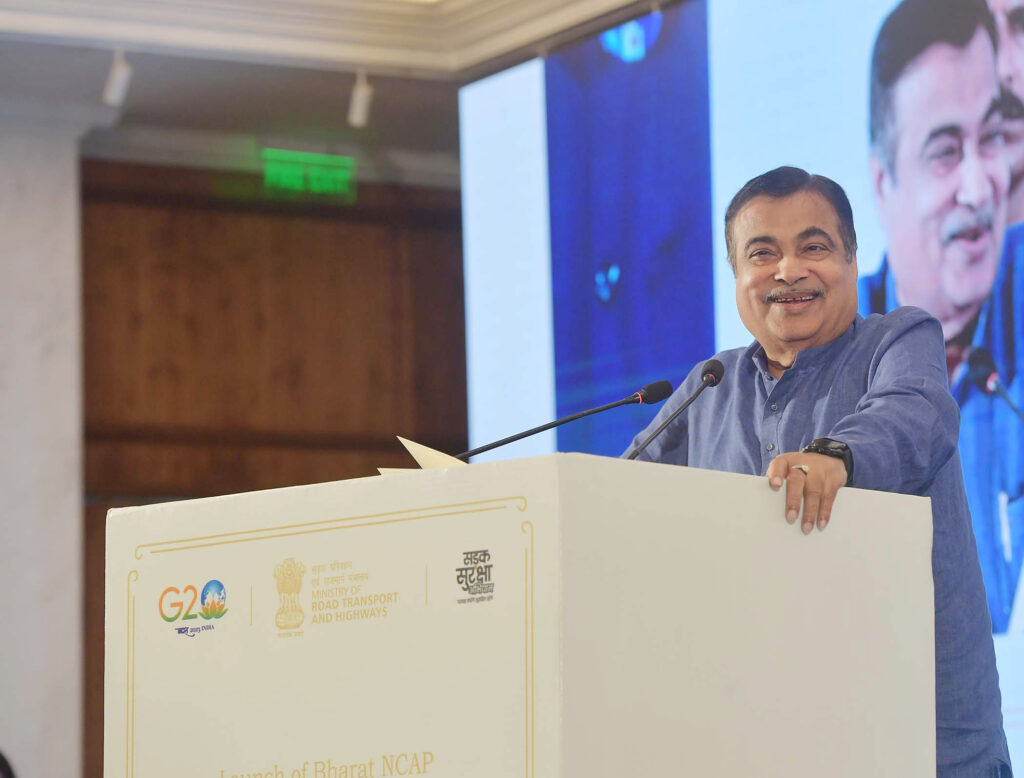
In a recent discussion at the ACMA conference, Mr. Nitin Gadkari, the Hon’ble Minister of Road Transport & Highways, Government of India, shared his insights on the challenges and opportunities facing India’s automotive sector. His vision encompasses a holistic approach to economic growth, sustainability, and technological advancement.
Embracing Technological Advancements
Mr. Gadkari emphasized the importance of adopting new technologies in the automotive sector. He shared an anecdote about a friend in the petroleum industry who was initially reluctant to invest in electric vehicles (EVs). However, the friend later realized the missed opportunity as the market shifted towards electric mobility.
Mr. Gadkari highlighted, “Embracing cost-saving, pollution-reducing technologies is crucial for staying competitive in the global market. The market is evolving, and companies must adapt to changing consumer preferences and technological advancements. The transition to electric vehicles is a prime example. While the initial cost of EVs was high due to expensive lithium-ion batteries, the prices have significantly decreased over time.”
Mr. Gadkari believes that within two years, the cost of electric vehicles will be comparable to petrol and diesel vehicles, eliminating the need for subsidies.
Promoting Road Safety
Road safety is another area close to Mr. Gadkari’s heart. Despite numerous efforts, the rate of road fatalities remains high. He acknowledged this as one of the ministry’s significant challenges. With five lakh accidents and one lakh deaths annually, the statistics are alarming. A considerable percentage of these accidents involve two-wheelers and pedestrians, often due to the non-usage of helmets and poor road engineering.
“We need a collective effort to improve road safety, involving the automotive industry, social organizations, NGOs, and the media. Changing human behavior, particularly among the younger generation, is essential to instill a culture of road safety. Better road engineering and the identification of black spots are also crucial to reducing accidents.”
Encouraging Industry Collaboration
Mr. Gadkari praised the automotive industry’s efforts in enhancing vehicle safety and reducing pollution. He acknowledged the industry’s role in increasing exports and profits while contributing to the nation’s economic growth. However, he stressed the need for continuous improvement and adaptation to new technologies and market demands.
He also highlighted the importance of Corporate Social Responsibility (CSR) initiatives in addressing social issues. By organizing programs and contributing to social causes, the industry can play a vital role in creating a safer and more sustainable society. Mr. Gadkari appealed to the industry to support road safety initiatives and contribute to reducing accidents and fatalities.
Transitioning to Electric Vehicles
Mr. Gadkari discussed the current state of EV penetration in India. He noted that while the penetration rate for passenger vehicles is still low, there is significant potential for growth. He believes that the market will naturally drive this transition as consumers become more aware of the benefits of electric vehicles. He emphasized that the government does not need to mandate this shift, as the market forces and consumer preferences will lead the way.
He also mentioned ongoing pilot projects, such as the one in his own city, where they are testing new charging systems for electric buses. These initiatives aim to demonstrate the feasibility and benefits of electric mobility, encouraging wider adoption across the country.
Addressing Economic Viability
“The economic viability of transitioning to electric vehicles is becoming increasingly apparent. The cost of lithium-ion batteries has decreased significantly, making EVs more affordable. As manufacturing scales up, the cost of production will continue to decrease, further driving down the prices of electric vehicles. This economic advantage, combined with the environmental benefits, makes a strong case for the widespread adoption of electric vehicles in India.”
In Conclusion, Mr. Nitin Gadkari’s vision for India’s automotive sector is comprehensive and forward-thinking. By promoting technological advancements, emphasizing road safety, and encouraging industry collaboration, he aims to create a sustainable and prosperous future for India. His call for industry collaboration and social responsibility underscores the importance of collective efforts in achieving these goals. As India continues to evolve, Mr. Gadkari’s insights and initiatives will play a crucial role in shaping the nation’s economic and social landscape.